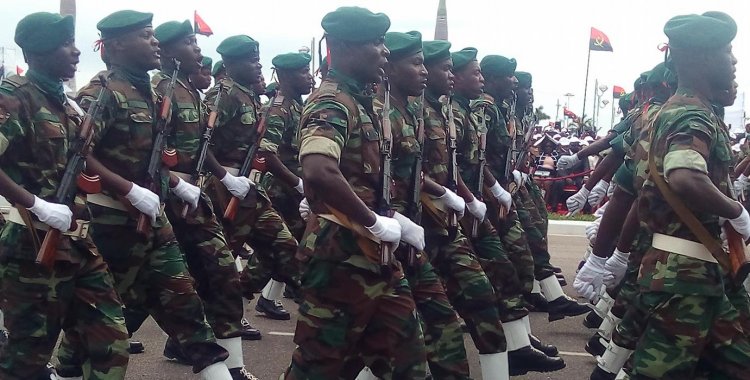Speaking to the Lusa agency, the analyst said that Cabinda is an integral part of Angola, "but it is known that there are some forces at Cabinda level that defend the need for independence".
The Front for the Liberation of the State of Cabinda — Forças Armadas Cabindesas (FLEC-FAC) is the visible face of this demand, claiming that the enclave was a Portuguese protectorate – as established in the Treaty of Simulambuco, signed in 1885 – and not an integral part of Angolan territory.
For Tiago Armando, Cabinda "is a dossier that requires study, analysis and, at the same time, a response from the Angolan Government".
"Because this is not new today, we are always listening to this situation, which is why the State itself must carry out an analysis and respond to this", said the academic, highlighting that this response must depend on the assessment of the context.
"If it is a military threat, then the response will be military, if it is not military, then the response will also not be military," he stated.
The Government's silence about what is happening in that part of the country's territory "is not a positive sign", he said, considering that given the information about attacks on Cabinda, "there must be clarification about what is actually happening".
"If they really are FLEC, if they are some insurgents, who tend to have control of certain areas, only the State can tell us that, so this requires an analysis, the profile of individuals, groups, in order to have official communication", he said.
According to the researcher, these forces tend to engage in violent practices, but Tiago Armando also questioned "whether in fact" the actions that FLEC claims are actually theirs or those of groups of individuals with economic interests in that region.
"We are often at the mercy of information that appears on social media and what we wait for, so that we have more details, is any official information from the Government of Angola", he added.
"If they really are individuals from FLEC or groups with economic interests who want to have control of a certain area with natural resources, which they want to exploit illegally, every now and then these individuals carry out acts of terrorism or violence to create panic and also to make them known", he highlighted.
The territory of Cabinda is rich in oil, where most of the national production comes from, wood, gold, diamonds, uranium and phosphates.
For Tiago Armando, it is necessary, from a national security point of view, to be able to identify "the various variables that trigger these situations and provide an effective response".
The permeability of the common border, continued the international relations specialist, generates an exchange of accusations about the invasion of territory between Angola and the neighboring Democratic Republic of Congo (RDCongo).
According to the analyst, this porosity of the border also facilitates the escape of elements fighting in Cabinda, who "easily manage to cross to the other side", violating the borders.
"Often the response is very violent and involves loss of human life and accusations of invasion of territory arise. It is a dossier that requires study, analysis and at the same time a response from the Angolan Government", he stressed.
Last week, FLEC announced that it carried out an attack against a platoon of the Angolan Armed Forces, claiming to have killed 12 Angolan soldiers and seriously injured four, and that the FAC will intensify attacks "against Angolan soldiers throughout the territory of Cabinda".
In the FLEC statement, signed by Lieutenant General João Cruz Mavinga Lúcife, head of the FAC Special Forces directorate, it is guaranteed that the Angolan side "is solely responsible for the worsening of the conflict" in that region.
The Government does not respond to these FLEC communications about the attacks and the number of deaths.







